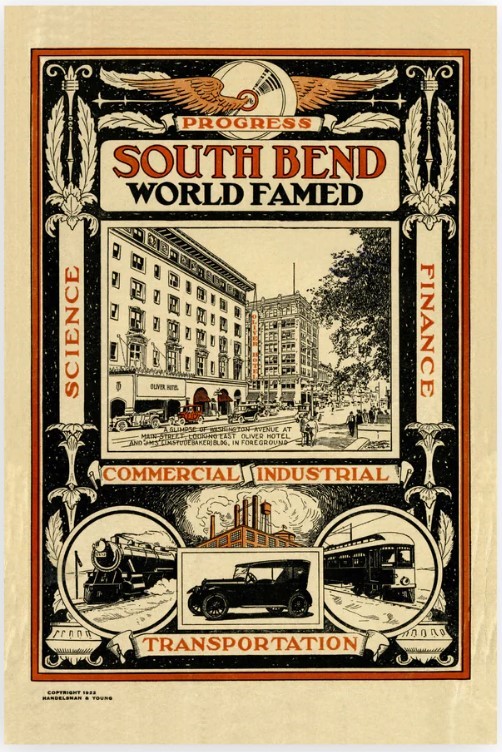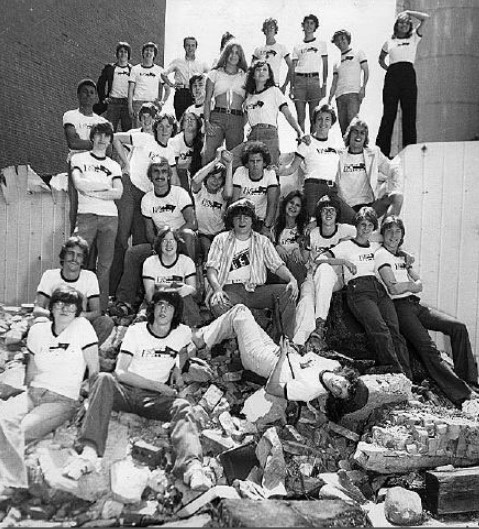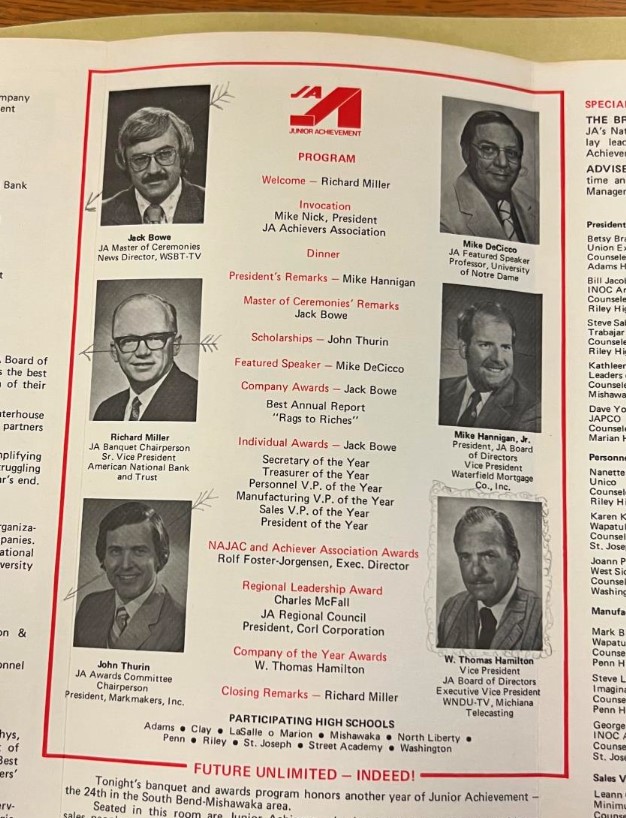I’ve got a draft of the first chapter, and I’ll share the introduction to it here. The key word there is “draft.” It’s early days and everything could change significantly, but I wanted to start the book out with the institutional entities that were in place before Beyond Our Control even started and identify how they helped support and shape what BOC became. So here’s the opening tease for it.
“There’s a rumor going around that during the ‘80s and ‘90s a frequently asked question in Hollywood film circles was ‘Where’s South Bend, Indiana, and why are so many young filmmakers coming out of that place?’ If the answer to the first part of the question was easy to figure out, the second part wasn’t. There were no great film schools in South Bend — no renowned theater groups or actor’s workshops and no plausible explanation for the plethora of talent pouring out of the little town in middle-America. There was only the implausible, the impossible, the absurd explanation that a group of kids had somehow captured the keys to a local television station and clung to them for the next 18 years.” — Lou Pierce, South Bend Tribune, 2001[1]
A pro-business non-profit organization’s support of a commercial television program on a station owned by Catholic university in which teenagers mocked corporations, advertising, and authority figures seems nearly as implausible as kids holding station keys hostage for nearly two decades. Yet that formula is essentially the answer to the second part of Lou Pierce’s question. What made these unprecedented circumstances possible in South Bend? This chapter focuses on the institutional conditions that enabled Beyond Our Control to flourish, from the city itself to the national educational association that sponsored it and the local television station that housed it.
A starting point is the apparent vacuity of South Bend that Pierce describes. A region that offered more for young people to do likely wouldn’t have been able to funnel so many creative kids into a television project. But also, South Bend wasn’t just any old struggling Rust Best town. The unique components that defined the city’s collapsing environment actually helped to fuel the satire that drove BOC forward. The show’s young participants were able to see on their very streets the material conditions of their deteriorating town and draw connections between that and how television typically glossed over economic deficiencies.
Beyond Our Control’s sponsoring organization, Junior Achievement, would also be inclined to gloss over any struggles under capitalism because it was founded to teach children that free enterprise and industrialism were the bedrocks of the United States and its democratic ideals. The lure of socialism had to be combatted by teaching the future voters of America about its wrongheaded ways, and the most productive route to that would be to give young people real-world experiences in entrepreneurship so they could see first-hand how individualism trumped collectivism. While JA’s support was crucial for providing a stable structure for a successful, long-running television production, it also laid bare the ways in which BOC itself and the wider South Bend community benefited from a collective effort over any individualistic motivations, including in how it earned money for its young participants at a time and place in which jobs for teens could be hard to come by. That plus BOC’s fundamental mockery of one of America’s most thriving postwar businesses produced occasional strains within the JA and BOC relationship, but that in turn taught the company members how to navigate multifaceted professional structures.
Such lessons were more than the founders of BOC’s television station may have originally intended, but WNDU-TV and its owner, the University of Notre Dame, provided the space for Beyond Our Control’s production because of their commitment to an educational mission. WNDU also had a financial imperative, which the commercial ad sales that JA’s structure enabled helped to contribute to, but BOC never could have afforded the cost of studio time they used without some station altruism. As with JA, that relationship could have been endangered due to the occasional disharmony between the young producers and the station’s staffers, but navigating those professional relationships to ensure that the show could go on taught BOCers more than any textbook could.
Overall, the unique character of each of these institutional spaces was fundamental not just to Beyond Our Control’s mere existence but just as much to its ability to thrive for nearly two decades. Yet the relationships BOC forged with them were never simple nor without challenge. Within and between each of these entities, there were tensions and cracks. But from that variegated foundation grew knowledge, insight, and critical thinking – as well as humor — that would not have existed otherwise.



[1] Lou Pierce, South Bend Tribune, August 22, 2001, http://www.beyondourcontrol.org/boc2/pages/bitsandpiecespages/bitsandpieces2001/loupiercearticle.html
